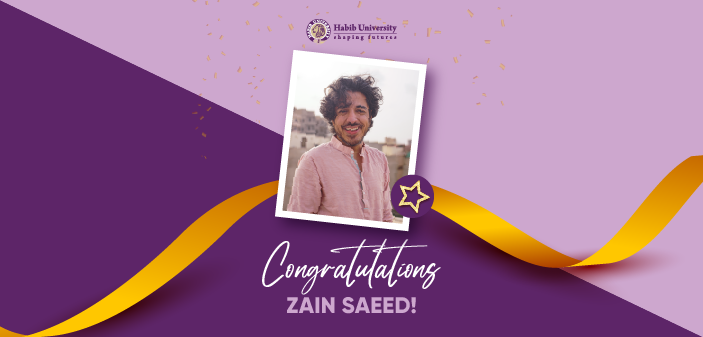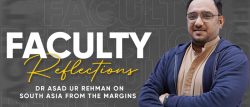Zain Saeed, Program Director and Assistant Professor Communication and Design has won the Getz Pharma Award for his debut book ‘Little America’ at the recently concluded Karachi Literature Festival.
The book follows Sharif Barkati, obsessed with “American” ideas of love and freedom, and his investigation of the desire to create a public place where people are allowed to do whatever they want, free of the conservative gaze of Pakistani society. This, he envisions as Little America located on the Karachi coast. The novel questions the meaning of freedom and what can be sacrificed in its name.
‘Little America’ was launched in September 2021 at Habib University’s campus and was met with praise. Speaking about winning the award at Karachi Literature Festival, Saeed said, “It was a massive surprise, I’m still a little unsure of how to react. The literary community in Karachi has been really kind to me, so I’m just trying to enjoy the moment.”
Elaborating on his next steps, he mentioned that he has been invited to discuss the book at the Lahore Literary Festival. He is currently working on his second book which is set to be published in a month’s time.
Saeed, who teaches a number of creative writing and literature courses at Habib University, earned his MFA from the University of Texas at Austin. His work has appeared in several publications including Glimmer Train for which he wrote ‘The Earth is a Stingy Bastard’ in 2017. He has also written for the Hindu BLink and “The Man at the Window,” and “All is Accommodation,” for the Freiburg Review. Saeed’s research interests involve race, writing pedagogy, language change, as well as literature in English. He is also interested in the evolution of language in fiction.
Fiction writing in English has a small pool of authors in Pakistan. The literary sphere suffers from a lack of good literature and writers. The question that comes up repeatedly is how to encourage Pakistani writers to keep our literary culture alive.
Saeed advised, “I would encourage them [writers]to try to tell stories about themselves, about who they are, their own experiences, about what it means to live in Pakistan for them. There are too many stories out there about the West and how it sees people in our part of the world, even from writers of Pakistani heritage, and we need to change that.”




